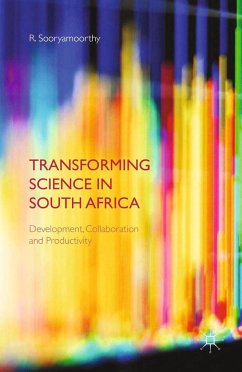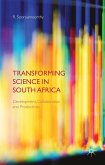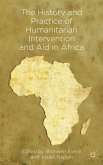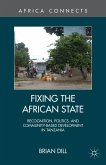This book is essential for anyone interested in knowing how science works nationally and internationally in the contemporary world. It offers a comprehensive analysis of scientific collaboration and its relation to development and the productivity of scientists, with specific reference to South Africa in both the past and the present.
"Transforming Science in South Africa begins with an historical overview of the hard sciences and then discusses what the state of the fields are today. ... Much of the book is devoted to quantitative evidence that shows the various kinds of publications generated in the country and how these have changed over time, particularly since the end of apartheid. Sooryamoorthy's intention is to demonstrate the value of collaboration between scientists, particularly in international cooperation ... ." (Zeb Larson, Journal of Global South Studies, Vol. 35 (1), 2018)
"The book draws on considerable empirical material, drawn from national and international quantitative data: historical documents, archival data, bibliometric records ofpublications ... as well as 200 interviews with scientists and academics. ... The book shows that, in institution-initiated collaboration, individual scientists are again the main actors. ... the book contributes to a better understanding of the current transformations of North-North, North-South, and South-South relations." (Lynda Sifer-Rivière, International Sociology Reviews, Vol. 32 (5), 2018)
"The first cohesive attempt to provide the empirical weight of evidence to support sociologists' claims and long-held suspicions about knowledge production and scientific advancement being a community initiative ... . should be mandatory reading for policy makers, academics, especially early career academics and anyone with a broad interest in the sociology of knowledge production. ... It is excellent book overall that should find a place in local libraries given its contribution to the sociology of knowledge production in South Africa." (Shaun Ruggunan, South African Review ofSociology, Vol. 47 (2), 2016)
"The book draws on considerable empirical material, drawn from national and international quantitative data: historical documents, archival data, bibliometric records ofpublications ... as well as 200 interviews with scientists and academics. ... The book shows that, in institution-initiated collaboration, individual scientists are again the main actors. ... the book contributes to a better understanding of the current transformations of North-North, North-South, and South-South relations." (Lynda Sifer-Rivière, International Sociology Reviews, Vol. 32 (5), 2018)
"The first cohesive attempt to provide the empirical weight of evidence to support sociologists' claims and long-held suspicions about knowledge production and scientific advancement being a community initiative ... . should be mandatory reading for policy makers, academics, especially early career academics and anyone with a broad interest in the sociology of knowledge production. ... It is excellent book overall that should find a place in local libraries given its contribution to the sociology of knowledge production in South Africa." (Shaun Ruggunan, South African Review ofSociology, Vol. 47 (2), 2016)









